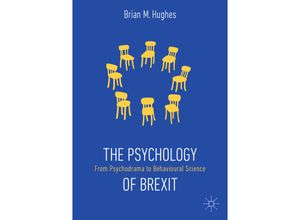The Psychology of Brexit examines the psychological causes catalysts and consequences of
Brexit. Unlike most cultural upheavals Brexit is not the result of accidental tragedy or
spontaneous economic turmoil. Rather it exists because people decided to make it exist. It is
a product of human psychology - shaped in critical ways by people's perceptions preferences
choices self-images attitudes ideas assumptions group relations and reasoned (or
ill-reasoned) conclusions. This book discusses how reasoning biases and illusions of control
propel - and pollute - the perspective of both Leavers and Remainers. It shows how social
stereotypes and motivated irrationality help otherwise groundless beliefs thrive in everyday
culture leading to group polarisation and echo-chamber reasoning. It reveals the way cultural
biases like sexism influence how Brexit politicians are portrayed and perceived. And it
explores the psychological impact of Brexit - its effect on social attitudes future thinking
and collective and individual mental health. In this compelling new book psychologist Brian
Hughes examines what scientific psychology reveals about the dynamics of Brexit what Brexit
teaches us about ourselves and what we can do to deal with its short-term impact and long-term
fallout.



